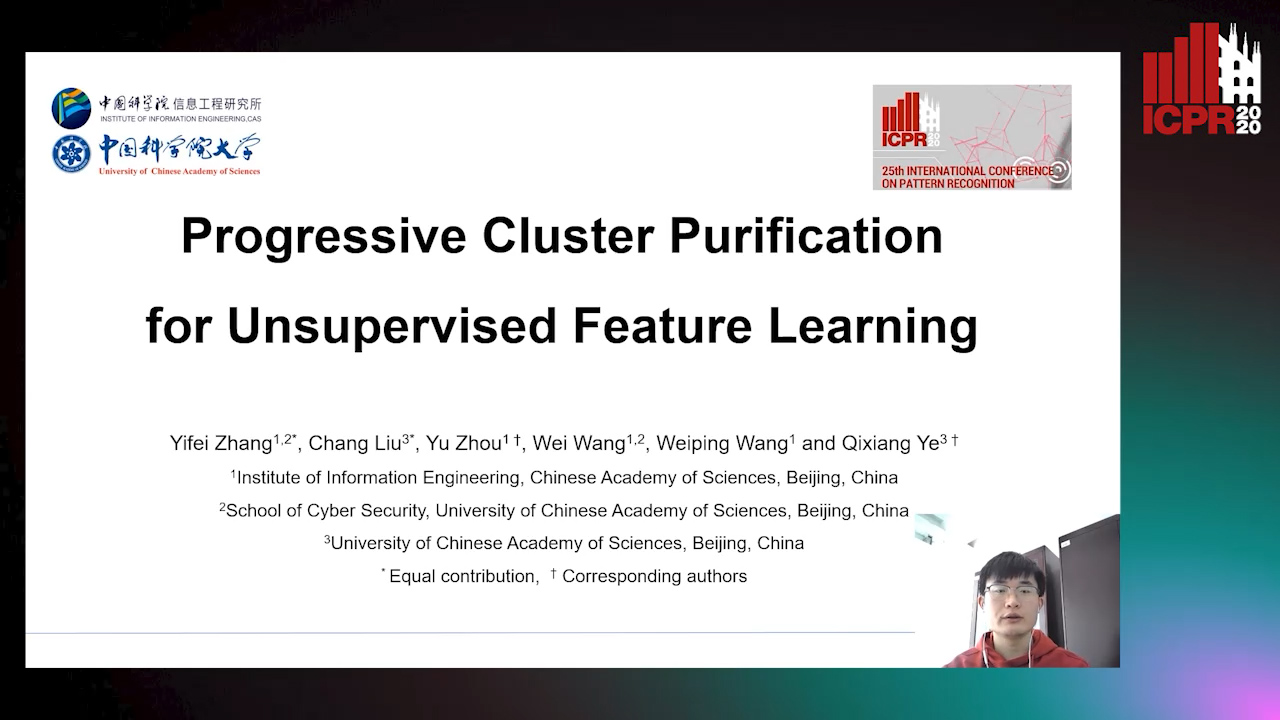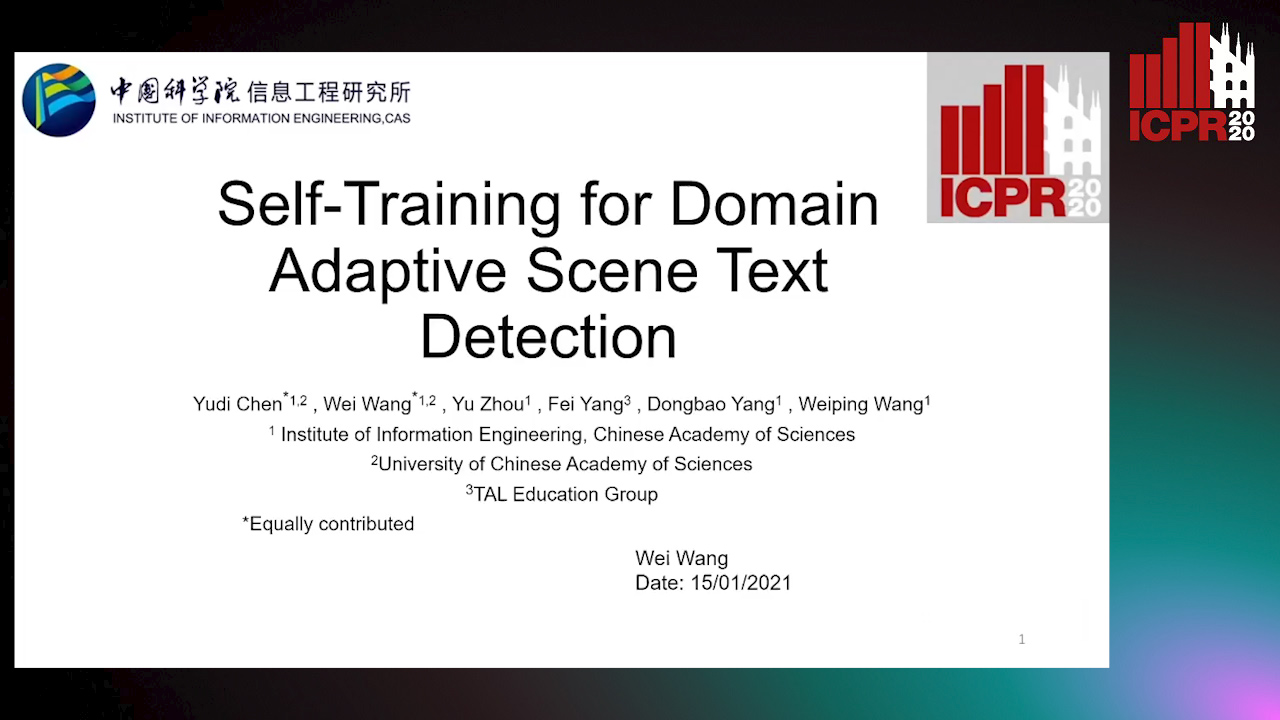Wei Wang
Papers from this author
Progressive Cluster Purification for Unsupervised Feature Learning
Yifei Zhang, Chang Liu, Yu Zhou, Wei Wang, Weiping Wang, Qixiang Ye

Auto-TLDR; Progressive Cluster Purification for Unsupervised Feature Learning
Abstract Slides Poster Similar
Self-Training for Domain Adaptive Scene Text Detection
Yudi Chen, Wei Wang, Yu Zhou, Fei Yang, Dongbao Yang, Weiping Wang

Auto-TLDR; A self-training framework for image-based scene text detection